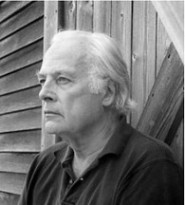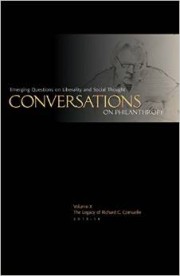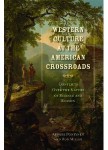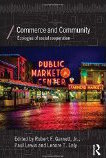A Wilde conundrum for philanthropy?
If one thinks of critics of capitalism, Oscar Wilde is probably not the first one that comes to mind, but the bohemian Wilde perfectly exemplifies an influential way of attacking the market on the grounds that it subordinates art and the cultivation of personality to commercial concerns. “Wilde’s ideal is the cultivation of the individual personality. The problem with private property is that it makes this doubly impossible, first by an unequal distribution of wealth, and worse, by a misguided system of values. Poor rich folk, says Wilde, their property prevents them from cultivating their intellect.”
A ticklish little paragraph from David Gordon’s review at Independent Review of Alan Kahan’s Mind vs. Money: The War Between Intellectuals and Capitalism.
Wonder what Oscar would have had to say to learn that in the crass and comparatively wealthy U.S. private funding of the arts seems to be quite healthy? As Tyler Cowen reported in Conversations on Philanthropy (2005):
Americans are by far the world’s most generous donors to the arts. Total charitable giving to the arts from U.S. individuals, foundations, and corporations now stands at about $10 billion per year. These donations come from private individuals (80 percent of the total), foundations (13 percent of the total), and corporations (7 percent of the total). In contrast, individual private philanthropy to the arts is virtually nonexistent in most European nations.
[Giving USA reported that for 2010, philanthropic giving to Arts, Culture and Humanities organizations was $13.28billion–]
Could it be that property + personality + intellect is actually one of the critical conditions of American philanthropy? Or are American donors somehow operating without all 52 cards in the deck?




